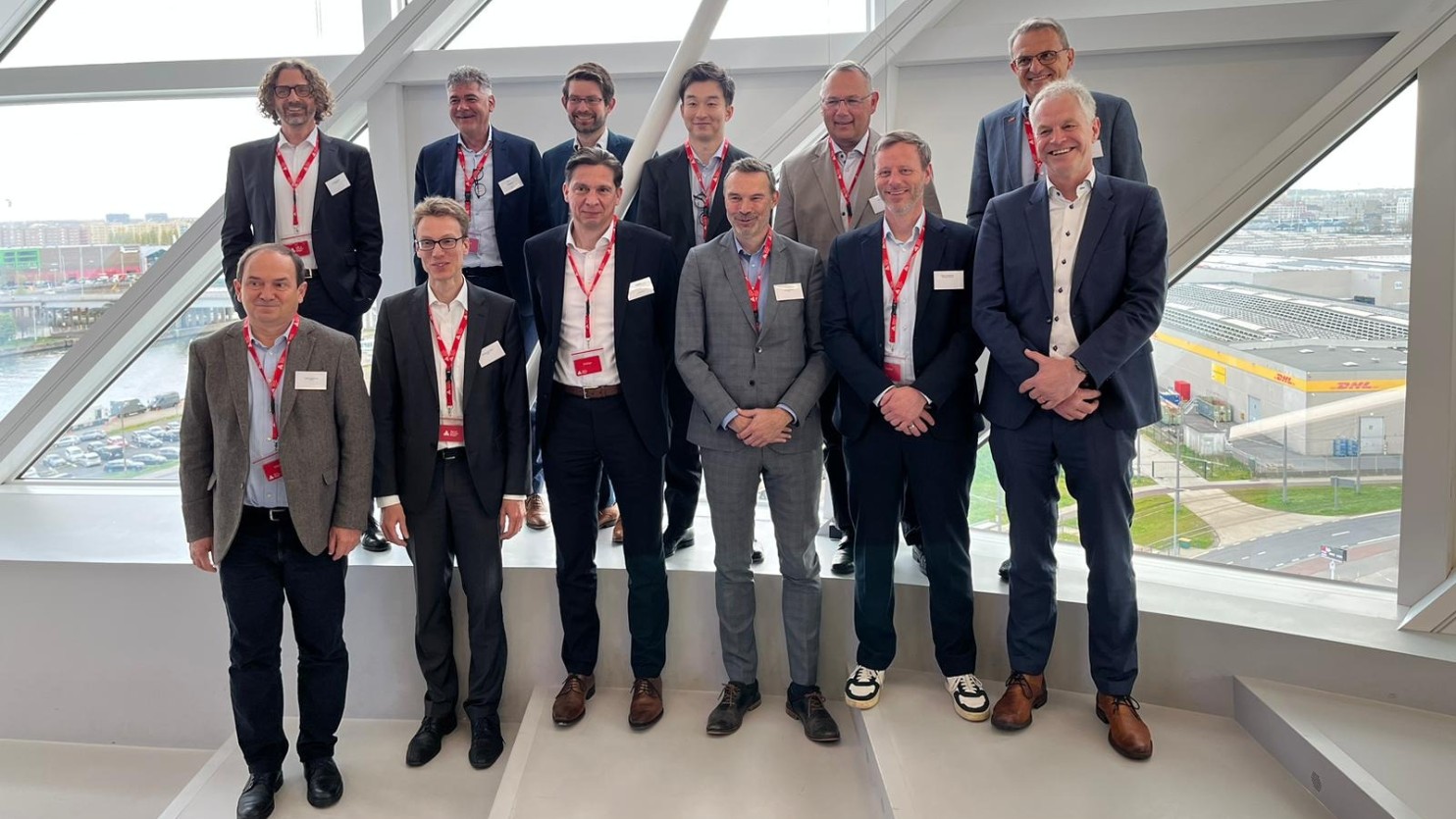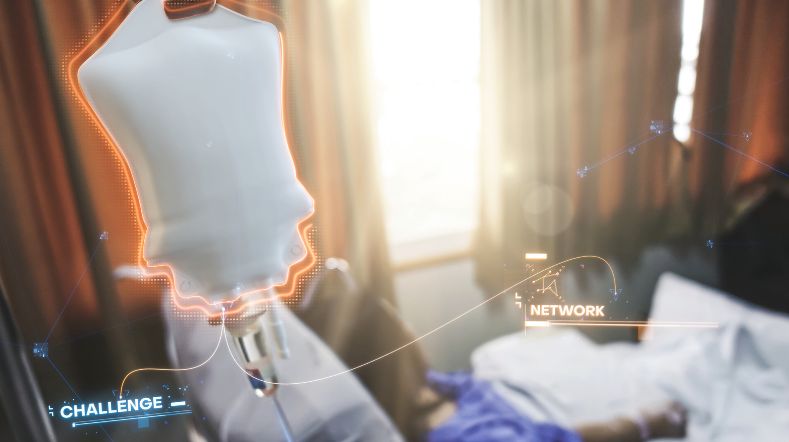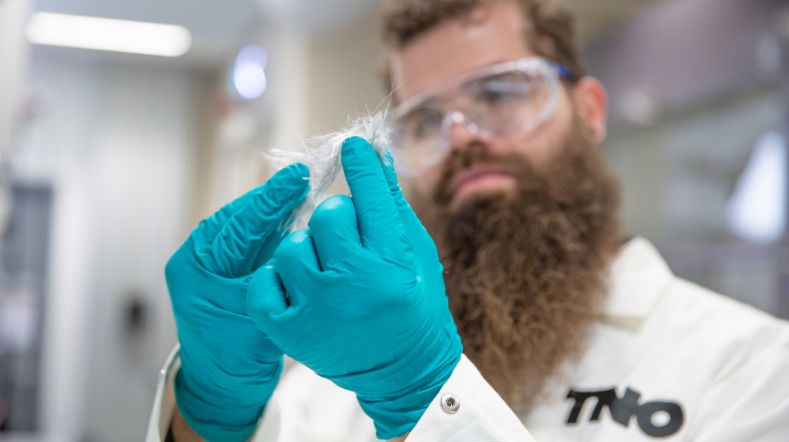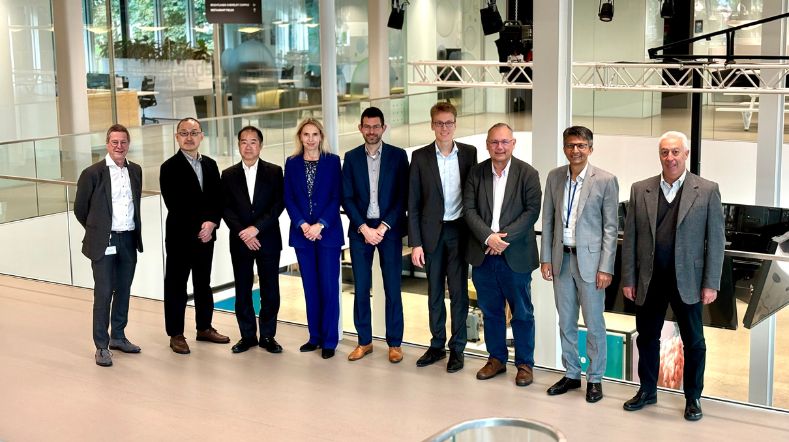TNO and seven chemical multinationals start R&D hub for waste processing
Seven member companies of the Low-Carbon Emitting Technologies (LCET) initiative of the World Economic Forum have signed a collaboration agreement with renowned Dutch innovation organisation TNO to support the LCET Research & Development Hub. Among the participants are BASF, Covestro, Dow, LyondellBasell, Mitsubishi Chemical, SABIC and Solvay.
Better plastic waste recycling and lower CO2 footprint
The R&D Hub will primarily focus on developing new technologies for waste processing that have a lower CO2 footprint and enables greater levels of plastic waste recycling than currently possible. The LCET R&D Hub for Waste Processing is LCET’s first project.

Plastic waste recycling
As a private sector driven initiative, the R&D Hub will tackle technical challenges associated with waste processing and help address industry-specific issues related to the development of mechanical and chemical recycling routes. The first set of R&D projects is set to launch in the second half of 2023. The projects are aimed at making significant strides towards more sustainable waste processing practices and also target technologies to increase waste suitable for recycling. This in alignment with the Low Carbon Emission ambition and next to innovative technologies for efficient plastic waste recycling.
TNO will host and manage the R&D Hub, lead the technology development, orchestrate and conduct the projects.

"This unique co-creation between the LCET members, our experts and innovation partners will result in practical and disruptive technology solutions to enable the development of circular plastics with a lower environmental footprint."
Henk-Jan Vink, Managing Director at TNO: "We are very proud to be selected as the host and orchestrator of this great initiative. This unique co-creation between the LCET members, our experts and innovation partners will result in practical and disruptive technology solutions to enable the development of circular plastics with a lower environmental footprint. TNO is confident to further build on its experience in the field of circular modelling, packaging and materials know-how and provide the industry with fit-for-use solutions.”
Koen Janssen has been appointed as Hub Director and Jan Harm Urbanus as Technical Challenge coordinator.
About the LCET initiative
The LCET initiative is a coalition of leading chemical-sector companies committed to achieving a net-zero and circular future. The LCET initiative has established the industry's first CEO-led coalition, signalling a critical move towards implementation.
Roberto Bocca, Head of the Centre for Energy and Materials and Member of the Executive Committee, World Economic Forum, said, "We are excited to witness the launch of the R&D Hub, which will drive innovative solutions for waste processing with lower carbon emissions and enhanced circularity. The Forum is proud to have incubated the Hub through the LCET Initiative and is committed to further progressing in this space”.
Listen to the podcast
Listen to the podcast from the World Economic Forum and gain insights into how the chemicals sector is working together to find sustainable technologies with experts:
- Jan Harm Urbanus, Lead Scientist Circular Plastics, TNO
- Hella Koops, Senior Project Manager and Cluster Lead Circular Plastics, TNO
- Charlie Tan, CEO, Global Impact Coalition
Get inspired
Early results show the potential of circular healthcare plastics


Biobased materials


Enhanced solvolysis contributes to the future of composite recycling


Collaboration for sustainability: better results through joint innovation



